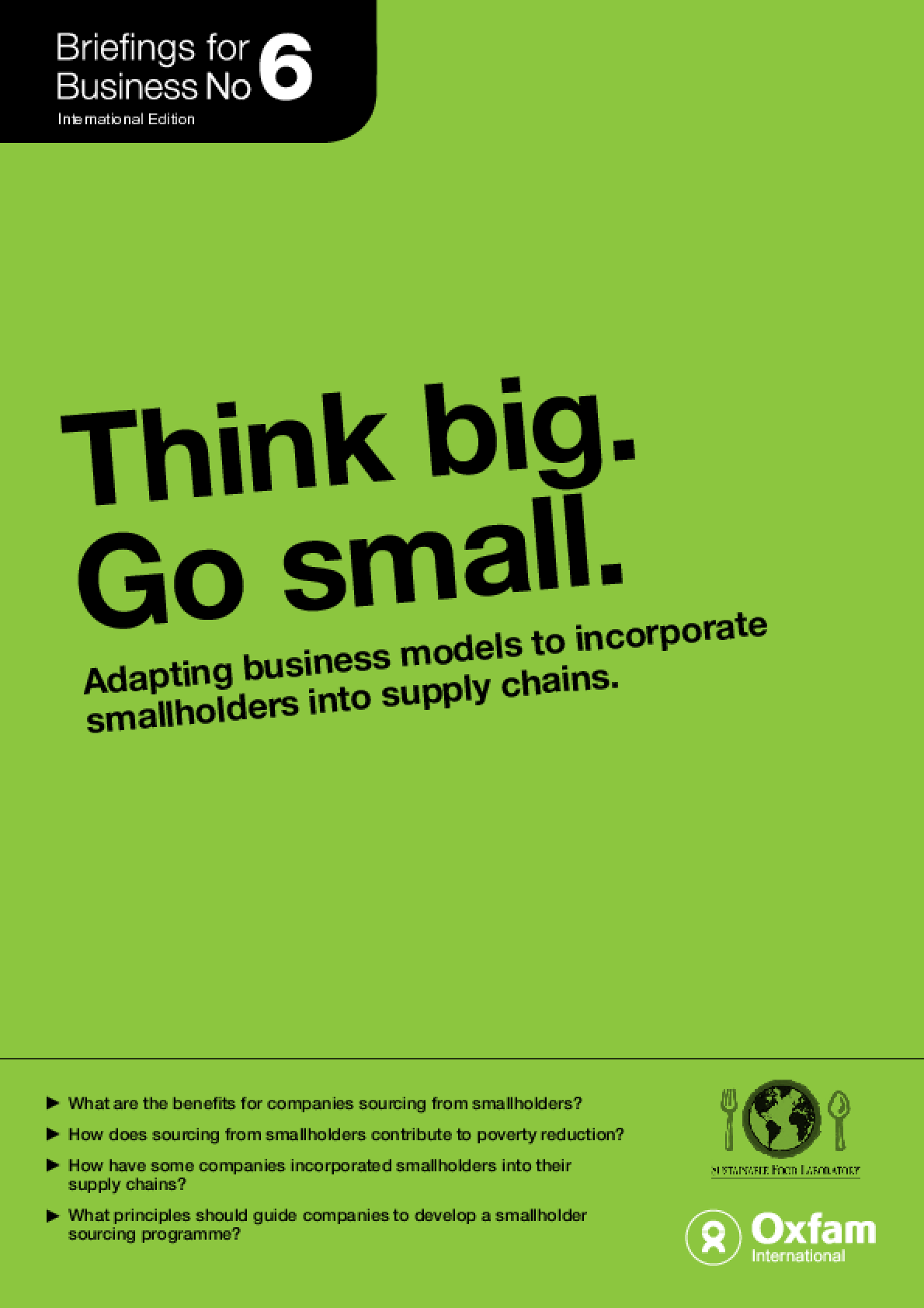Think Big Go Small: Adapting business models to incorporate smallholders into supply chains
This paper tries to show the advantages - both in productivity and consumer appeal - of domestic and global companies connecting with smallholder suppliers. It draws on programme experience and case studiesin the food and drinks sector where companies aimed to deliver value for their business in ways that would also benefit smallholder suppliers.





